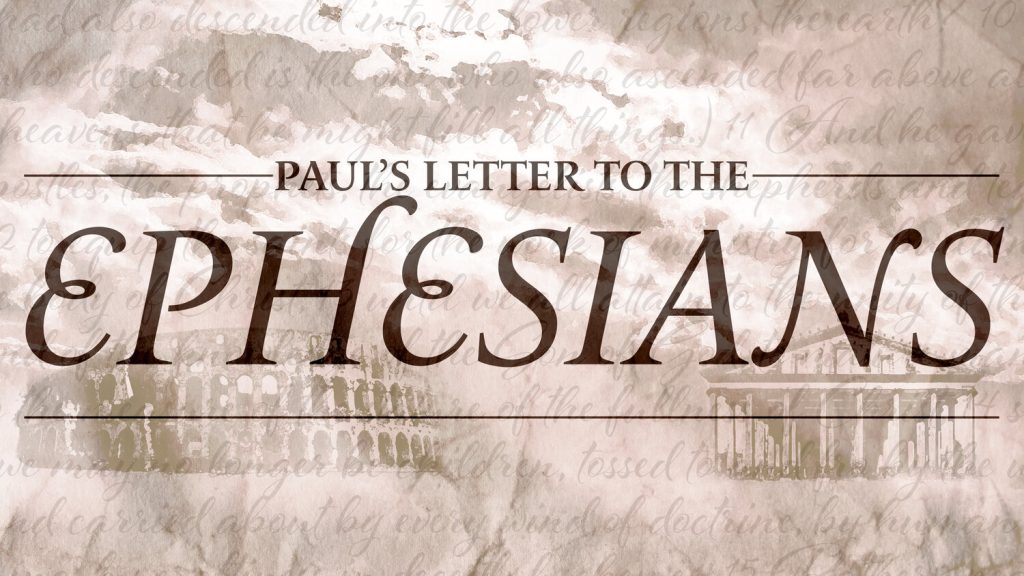Tonight we are discussing Ephesians 5:21-6:9 where we find Paul’s household codes. In these codes, Paul gives a representative sample of how our interpersonal relationships should mirror Christ and Paul’s teaching in verse 21 that we should be subject to one another. This email is available online.
Parents and Children: (vv.1-4)
In all three examples of household relationships that Paul gives us, Paul always addresses both parties to that relationship. In addressing the traditionally subservient party, Paul is giving them a share in the responsibility to maintain the unity and good order of the household. In most contemporary writings, only the head of the household is addressed and he then teaches his subordinates their roles, because the good order of the household is solely his responsibility.
Paul begins this teaching by addressing children. “Children” does not mean only minor children, but children of any age. (If you remember “The Godfather” Vito chastises Sonny for his lack of deference during their meeting with Sollozzo.) The reason for filial obedience is because it’s just the right thing to do and because God said so in Exodus 20:12 (which Paul somewhat misquotes). This obedience, Paul writes, is so that all may be well with you in this world. Unlike his instructions on husbands and wives, Paul does not place any deep spiritual meaning within the relationship.
Paul also says that children should obey their “parents.” Roman law followed the rule of patria potestas which means that the father had absolute power over his children, even the power of life and death. Children only owed their father obedience, not their mother. Part of the mutual submission in the marital relationship carries over here, where both the husband and wife are due obedience from their children.
Finally, Paul restricts the power of the father. He writes that fathers are not to provoke their children to anger but to instruct them in the Lord. In other words, the father must model Christ’s self-sacrificial and loving behavior towards his children. The father is the primary teacher of his children, and his teaching about Jesus must begin with his being like Jesus for his children and modeling Jesus’s own attitudes towards them.
Master and Slaves: (vv.5-9)
For modern ears, this is one of those areas of Paul’s letters that we wish to ignore, particularly because of the use of these provisions in the defense of slavery. However, this provision allows us to better see how Paul takes an existing institution and, while keeping its shell, radically reimagines and redefines the inner reality of these institutions. It also gives us a roadmap of how we too can reimagine and redefine unjust institutions in our times.
Once more, Paul begins by addressing the traditionally subservient member of the relationship. He tells the slave to be obedient to the master. The slave is to render good work, even if the master is not watching, for the slave ultimately works for Christ.
And, once more, Paul imposes obligations on the householder who traditionally holds absolute power over those under his authority. Paul instructs the master that his supervision must be done in full recognition that he is accountable to Christ for how he treats his slave. He should treat the slave as Christ treats him, for both the slave and the master are fellow slaves to Christ.
In Ephesians, Paul writes in general terms for a wide audience. To have a better understanding of Paul’s view of the institution of slavery, please read the Letter to Philemon. It is only 25 verses. The letter is written to Philemon, a slave owner, whose slave, Onesimus, ran away from the household and came to Paul in prison. Paul sends Onesimus back to Philemon with this letter, in which Paul urges Philemon to recognize Onesimus as a brother in Christ.
Dinner is a 6. The menu is Chili. Discussion about 6:45. Compline around 8. Hope to see you here!
Then his lord summoned him and said to him, ‘You wicked slave! I forgave you all that debt because you pleaded with me. Should you not have had mercy on your fellow slave, as I had mercy on you?’ And in anger his lord handed him over to be tortured until he would pay his entire debt. Matthew 18:32-34


Pingback: Ephesians 6:10-20, Armor of God – Ancient Anglican